Module1 Social communication Unit 1 Helping those in need 复习课件
文档属性
| 名称 | Module1 Social communication Unit 1 Helping those in need 复习课件 | 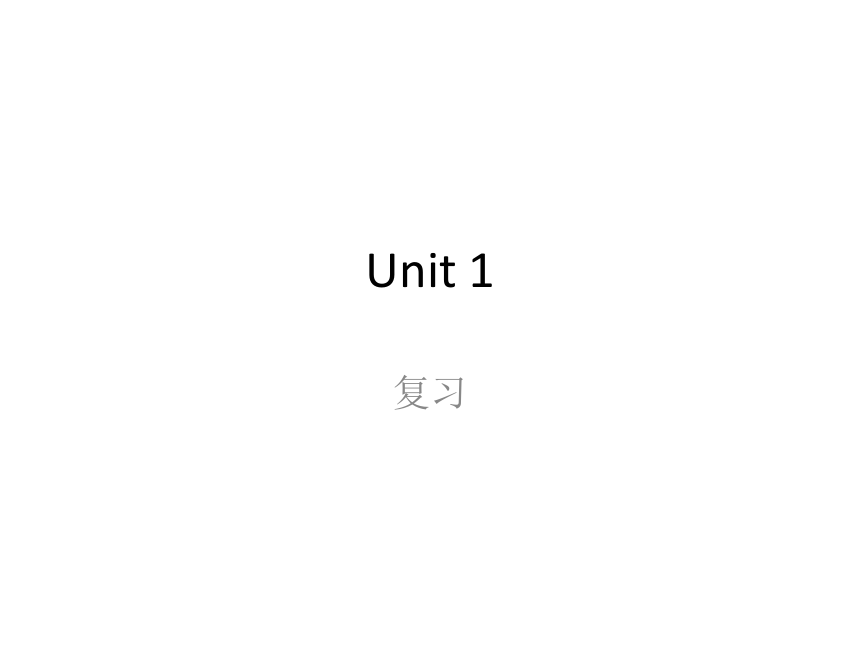 | |
| 格式 | zip | ||
| 文件大小 | 3.4MB | ||
| 资源类型 | 教案 | ||
| 版本资源 | 牛津深圳版 | ||
| 科目 | 英语 | ||
| 更新时间 | 2016-05-19 07:27:52 | ||
图片预览

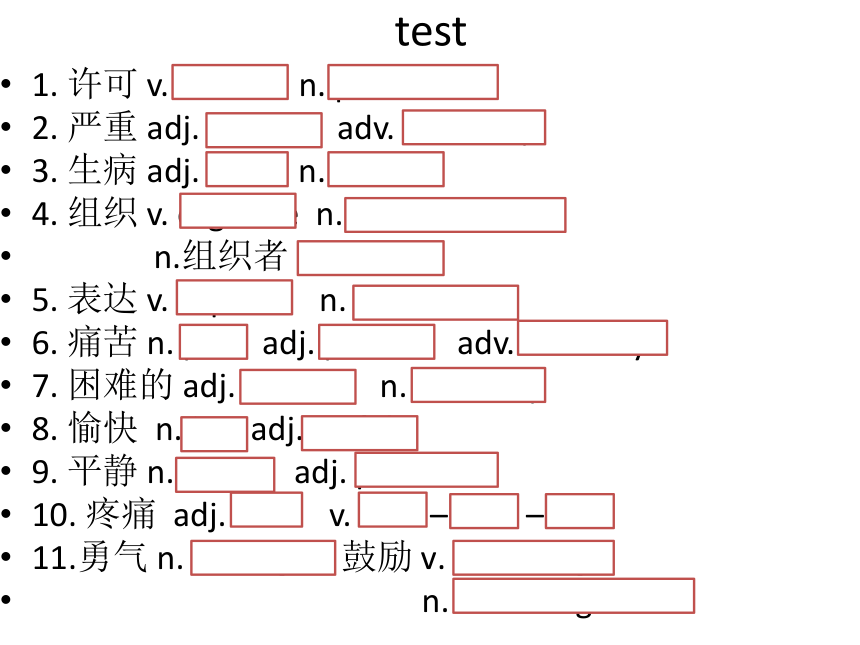
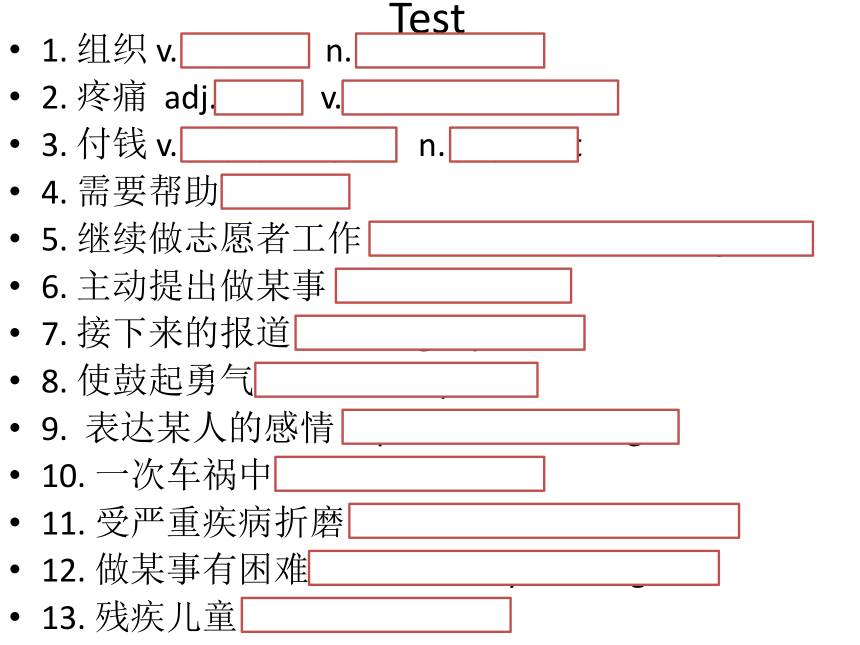
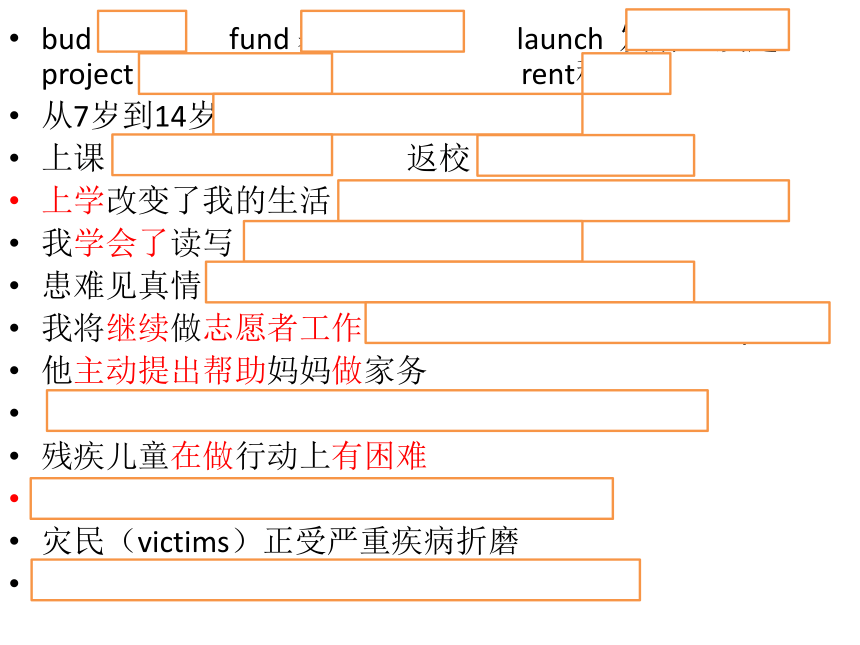

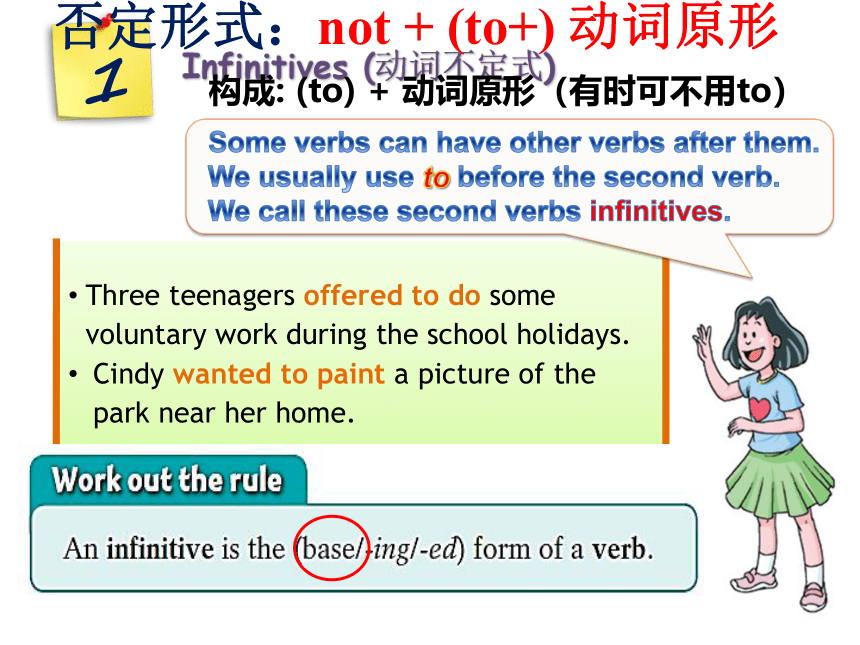
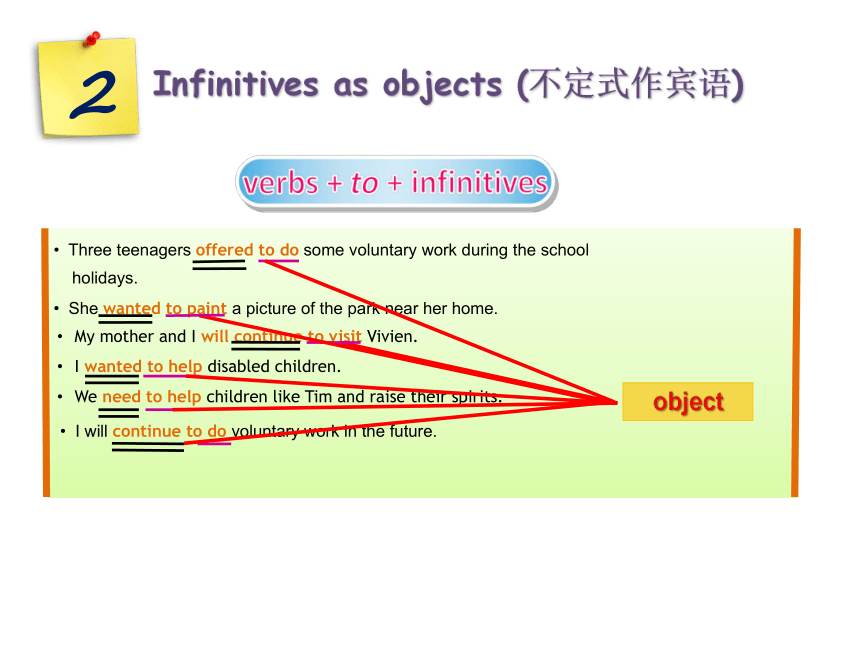

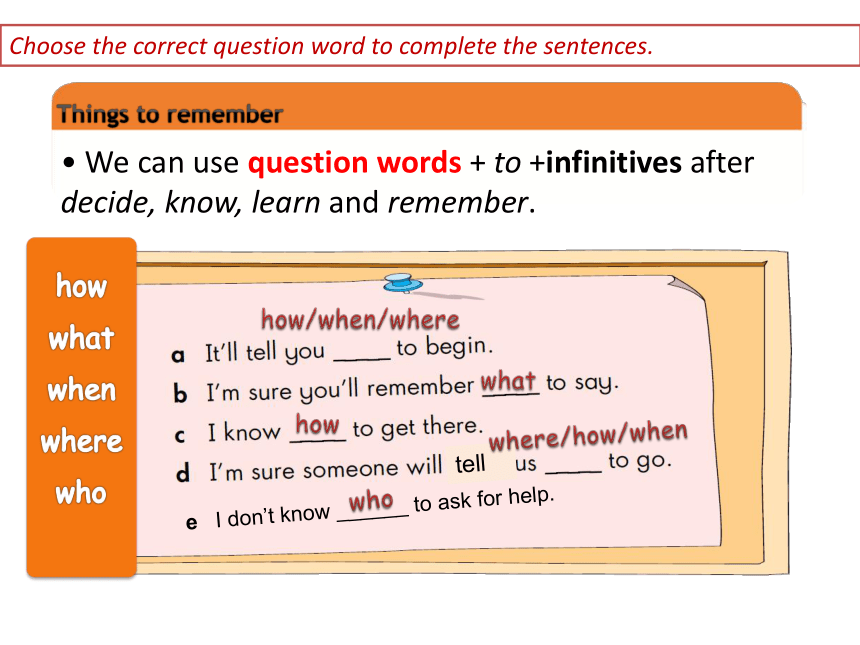
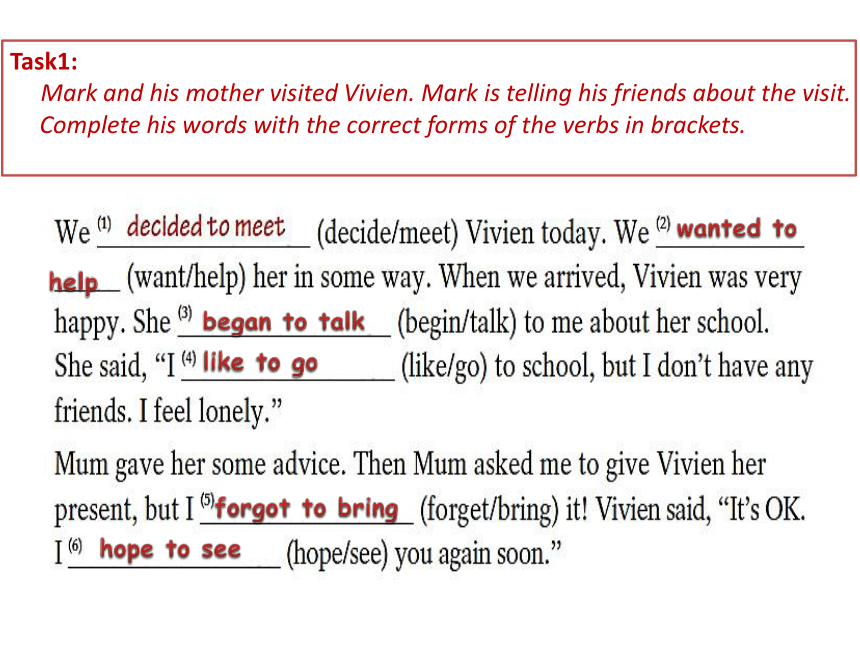
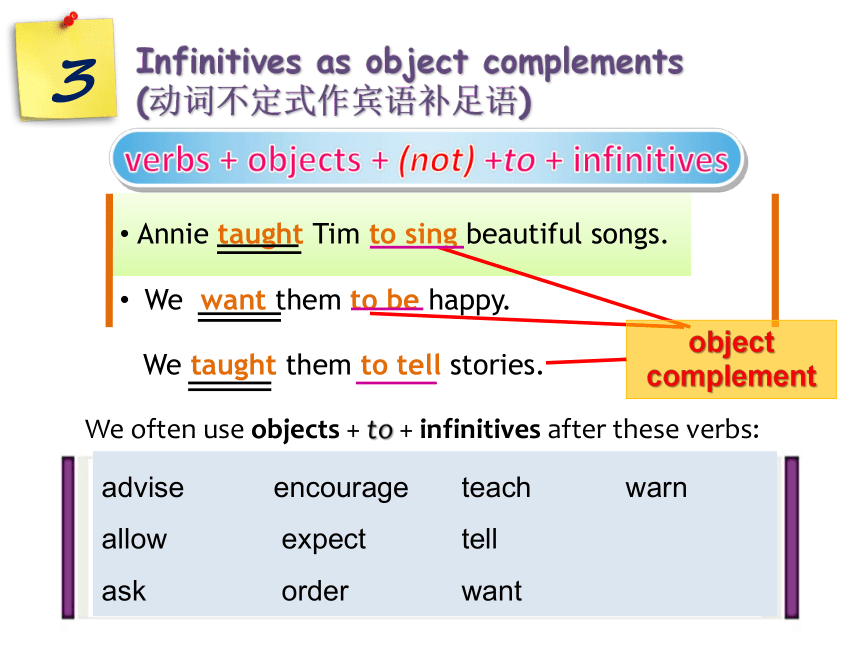
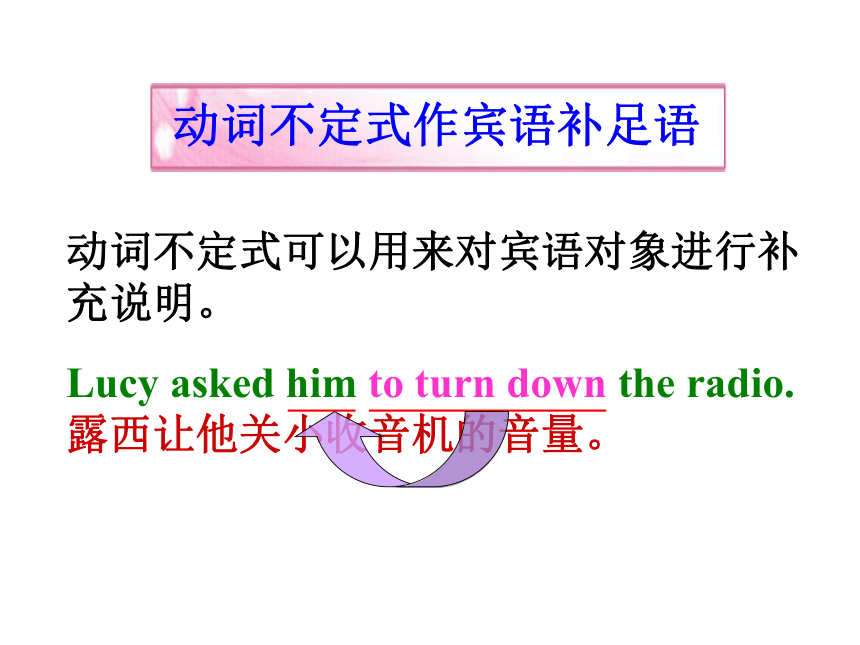
文档简介
课件35张PPT。Unit 1复习test1. 许可 v. Permit n. permission
2. 严重 adj. serious adv. Seriously
3. 生病 adj. ill n. illness
4. 组织 v. organize n. organization
n.组织者 organizer
5. 表达 v. express n. expression
6. 痛苦 n. pain adj. painful adv. Painfully
7. 困难的 adj. difficult n. difficulty
8. 愉快 n. joy adj. joyful
9. 平静 n. peace adj. peaceful
10. 疼痛 adj. hurt v. hurt – hurt – hurt
11.勇气 n. courage 鼓励 v. encourage
n. encouragement
Test 1. 组织 v. organize n. organization
2. 疼痛 adj. hurt v. hurt – hurt – hurt
3. 付钱 v. pay- paid-paid n. payment
4. 需要帮助 in need
5. 继续做志愿者工作 continue to do voluntary work
6. 主动提出做某事 offer to do sth
7. 接下来的报道 following reports
8. 使鼓起勇气 raise one’s spirits
9. 表达某人的感情 express one’s feelings
10. 一次车祸中 in a car accident
11. 受严重疾病折磨 suffer from serious illness
12. 做某事有困难 have difficulty in doing sth
13. 残疾儿童 disabled children
bud 萌芽 fund 基金,存款 launch 发射,发起 project 计划,工程 rent租
从7岁到14岁 age from seven to fourteen
上课 attend the class 返校 return to school
上学改变了我的生活 Going to school changed my life.
我学会了读写 I learnt to read and write.
患难见真情 A friend in need is a friend indeed
我将继续做志愿者工作I will continue to do voluntary work
他主动提出帮助妈妈做家务
He offers to help his mother with the housework
残疾儿童在做行动上有困难
Disabled children have difficulty in moving.
灾民(victims)正受严重疾病折磨
The victims are suffering from serious illness.
语法Infinitives (动词不定式)1Three teenagers offered to do some voluntary work during the school holidays.
Cindy wanted to paint a picture of the park near her home. Some verbs can have other verbs after them.
We usually use to before the second verb.
We call these second verbs infinitives.构成: (to) + 动词原形(有时可不用to)
否定形式:not + (to+) 动词原形 verbs + to + infinitivesInfinitives as objects (不定式作宾语)2My mother and I will continue to visit Vivien.
I wanted to help disabled children.
We need to help children like Tim and raise their spirits.object Three teenagers offered to do some voluntary work during the school
holidays.
She wanted to paint a picture of the park near her home.
I will continue to do voluntary work in the future.
常用的动词+to do作宾语有:
想要,忘记,拒绝(want, forget, refuse)
需要,努力,学习(need, try, learn )
喜欢,同意,帮助(like, agree, help)
希望,决定,开始(hope, wish, decide, begin, start)Things to remember? We can use question words + to +infinitives after decide, know, learn and remember.Choose the correct question word to complete the sentences.how
what
when
where
who
how/when/wherewhathowtellwhere/how/whene I don’t know ______ to ask for help.who
Task1:
Mark and his mother visited Vivien. Mark is telling his friends about the visit.
Complete his words with the correct forms of the verbs in brackets.wanted tohelpbegan to talklike to goforgot to bringhope to seeInfinitives as object complements
(动词不定式作宾语补足语)3
Annie taught Tim to sing beautiful songs.
We want them to be happy.object complementverbs + objects + (not) +to + infinitivesWe often use objects + to + infinitives after these verbs:advise encourage teach warn
allow expect tell
ask order want We taught them to tell stories.Lucy asked him to turn down the radio.
露西让他关小收音机的音量。动词不定式可以用来对宾语对象进行补充说明。动词不定式作宾语补足语Task2: Translate the following sentences into English. 杰克想让我给他带些漫画书。
卡西建议他们打车。
爷爷让我把盐递给他。
妈妈提醒我晚饭不要迟到。Jack wanted me to bring him some comic books. Cathy advised them to take a taxi. My grandpa asked me to pass him the salt.My mum reminded me not to be late for dinner.infinitives without to4Things to rememberWe use infinitives without to after some verbs, such as let and make.
e.g. This makes them express their feelings.
We can use infinitives either with or without to after the verb help.
e.g. This song helped him (to) relax.
object complement notice listen to hear watch 五看 see look at observe三使 let make have 二听一感觉: feel+sb. do sth.
(不带to)动词help后面的动词不定式可带to,也可不带to。
She often helps me (to) do the housework.
她常常帮我做家务。
We helped him (to) fix his bike.
我们帮他修自行车。Task3:
Betty is visiting Cindy in the hospital. Complete their conversation with the
correct forms of the verbs in brackets.letgowantsto staywant to taketeach to paintInfinitives of purpose (不定式表目的)5e.g. Cindy used a brush to paint a picture of a park.adverbial of purposeRule②: We can use an infinitive to say why someone does something.e.g. They went to the hospital to help the sick children.Rule③: We use Why to ask about the purpose.Rule①: We can also use an infinitive to say why someone needs or uses something.e.g. Why did Cindy use a brush?
Why did they go to the hospital?Rule⑤: 由in order to引导的目的状语,既可以置于句尾,也可以置于句首+逗号。They started early in order to get there in time.
= In order to get there in time, they started early.
为了及时赶到那里,他们很早就出发了。Rule④: 不定式前面加in order构成in order to do …可加强语气或使目的意义更加清楚,表示为了做...
She is running quickly in order to catch the train.
为了赶火车,她正飞快地跑着。Task4:
Use the information in the reports on page 3 to answer these questions. Use
the correct infinitives in your answers.to organizeto taketo helpto bring动词不定式的构成: (not)to + 动词原形
动词不定式的句法功能: 作宾语、宾语补足语和表目的作目的状语
Mr. Smith told his son _____ the football match because of the exam.
(2015呼和浩特)
A. not to watch B. to not watch
C. not watching D. doesn’t watch
2. Don’t forget _____ it to me when you finish reading the book. (2015郴州)
A. to bring B. bringing C. bring
3. When you leave, please turn off the lights _____ energy. (2015泰安)
A. save B. to save
C. saving D. saved4. We are too tired. Let’s stop _____ a rest. (2015益阳)
A. to have B.have C.having
5. My parents often tell me _____ too much junk food because it’s bad for my health. (2014山东临沂)
A. not eating B. not to eat
C. eating D. to eat6. She’s not strong enough _____ walking up mountains. (2014浙江杭州)
A. to go B. going
C. go D. went
7. He lost his key. It made him _____ in the cold to wait for his wife’s return. (2014重庆)
A. to stay B. stayed
C. stays D. stay8. Many children are left alone in the countryside. Let’s try our best _____ them. (2014浙江衢州)
A. help B. helping
C. to help D. helps
9. --Excuse me. Could you please tell me _____ my car?
--Sure. Park it right here. I’ll help you. (2014山东青岛)
A. how to stop B. where to park
C. where to stop D. when to park10. Our teacher often tells us _____ in the river. It’s dangerous. (2013广西贺州)
A. don’t swim B. not swim
C. not to swim D. not swimming
11. It was time for class. Mr. King asked all the children _____ down quietly. (2013山东济南)
A. sit B. sat
C. to sit D. sitting12. --What did your teacher say this morning?
--She told us _____ make faces in class. (2013湖北随州)
A. to not B. not to
C. do not D. didn't
13. All the Chinese people must work hard _____ China Dream. (2013湖南株洲)
A. to realize B. realize C. realizing14. He hurried back home _____ his schoolbag. (2013四川内江)
A. fetched B. to fetch
C. fetching D. fetchesII. 用括号内所给单词的适当形式完成句子。
1. We agreed ________ (meet) here, but so
far she hasn’t turned up yet.
2. The patient was warned _________ (not
eat) oily food after the operation.
3. To keep healthy, I decide __________
(exercise) half an hour every day.
4. I’m really hungry. Can I stop ______
(eat) something?
5. I asked him _______ (lend) me twenty
pounds. to meetnot to eatto exercise to eatto lend6. I got up early ____________ (practise)
reading English.
7. — Li Lei, summer vacation is coming.
Where will you go?
— I decide ______ (go) to Mount Tai.
8. Mr Li often teaches his Japanese friends
_______ (cook) Chinese food. to goto practiseto cookIII. 根据所给中文提示完成英语句子,每空
词数不限。
1. — What are you going to do?
— I ____________________ (想去散散步).
2. The policeman asked us _____________
________ (别踢足球) in the street.
3. — Kate, where did you go just now?
— I went to the library _______________
_______ (借些书).
4. Mum ______________________ (叫我读
英语) every day.
5. We agreed _______________ (现在就离开).want to go for a walk not to play
football to borrow some
booksto leave nowasked me to read EnglishMake up your mind to act decidedly and take the consequences. No good is ever done in this world by hesitation.
Decidedly adv. 果断地
Consequences n. 后果,结果;影响(consequence的复数)
Hesitation n. 犹豫
下定决心,果断行动,并承担后果。在这世界上犹豫不决成就不了任何事。
2. 严重 adj. serious adv. Seriously
3. 生病 adj. ill n. illness
4. 组织 v. organize n. organization
n.组织者 organizer
5. 表达 v. express n. expression
6. 痛苦 n. pain adj. painful adv. Painfully
7. 困难的 adj. difficult n. difficulty
8. 愉快 n. joy adj. joyful
9. 平静 n. peace adj. peaceful
10. 疼痛 adj. hurt v. hurt – hurt – hurt
11.勇气 n. courage 鼓励 v. encourage
n. encouragement
Test 1. 组织 v. organize n. organization
2. 疼痛 adj. hurt v. hurt – hurt – hurt
3. 付钱 v. pay- paid-paid n. payment
4. 需要帮助 in need
5. 继续做志愿者工作 continue to do voluntary work
6. 主动提出做某事 offer to do sth
7. 接下来的报道 following reports
8. 使鼓起勇气 raise one’s spirits
9. 表达某人的感情 express one’s feelings
10. 一次车祸中 in a car accident
11. 受严重疾病折磨 suffer from serious illness
12. 做某事有困难 have difficulty in doing sth
13. 残疾儿童 disabled children
bud 萌芽 fund 基金,存款 launch 发射,发起 project 计划,工程 rent租
从7岁到14岁 age from seven to fourteen
上课 attend the class 返校 return to school
上学改变了我的生活 Going to school changed my life.
我学会了读写 I learnt to read and write.
患难见真情 A friend in need is a friend indeed
我将继续做志愿者工作I will continue to do voluntary work
他主动提出帮助妈妈做家务
He offers to help his mother with the housework
残疾儿童在做行动上有困难
Disabled children have difficulty in moving.
灾民(victims)正受严重疾病折磨
The victims are suffering from serious illness.
语法Infinitives (动词不定式)1Three teenagers offered to do some voluntary work during the school holidays.
Cindy wanted to paint a picture of the park near her home. Some verbs can have other verbs after them.
We usually use to before the second verb.
We call these second verbs infinitives.构成: (to) + 动词原形(有时可不用to)
否定形式:not + (to+) 动词原形 verbs + to + infinitivesInfinitives as objects (不定式作宾语)2My mother and I will continue to visit Vivien.
I wanted to help disabled children.
We need to help children like Tim and raise their spirits.object Three teenagers offered to do some voluntary work during the school
holidays.
She wanted to paint a picture of the park near her home.
I will continue to do voluntary work in the future.
常用的动词+to do作宾语有:
想要,忘记,拒绝(want, forget, refuse)
需要,努力,学习(need, try, learn )
喜欢,同意,帮助(like, agree, help)
希望,决定,开始(hope, wish, decide, begin, start)Things to remember? We can use question words + to +infinitives after decide, know, learn and remember.Choose the correct question word to complete the sentences.how
what
when
where
who
how/when/wherewhathowtellwhere/how/whene I don’t know ______ to ask for help.who
Task1:
Mark and his mother visited Vivien. Mark is telling his friends about the visit.
Complete his words with the correct forms of the verbs in brackets.wanted tohelpbegan to talklike to goforgot to bringhope to seeInfinitives as object complements
(动词不定式作宾语补足语)3
Annie taught Tim to sing beautiful songs.
We want them to be happy.object complementverbs + objects + (not) +to + infinitivesWe often use objects + to + infinitives after these verbs:advise encourage teach warn
allow expect tell
ask order want We taught them to tell stories.Lucy asked him to turn down the radio.
露西让他关小收音机的音量。动词不定式可以用来对宾语对象进行补充说明。动词不定式作宾语补足语Task2: Translate the following sentences into English. 杰克想让我给他带些漫画书。
卡西建议他们打车。
爷爷让我把盐递给他。
妈妈提醒我晚饭不要迟到。Jack wanted me to bring him some comic books. Cathy advised them to take a taxi. My grandpa asked me to pass him the salt.My mum reminded me not to be late for dinner.infinitives without to4Things to rememberWe use infinitives without to after some verbs, such as let and make.
e.g. This makes them express their feelings.
We can use infinitives either with or without to after the verb help.
e.g. This song helped him (to) relax.
object complement notice listen to hear watch 五看 see look at observe三使 let make have 二听一感觉: feel+sb. do sth.
(不带to)动词help后面的动词不定式可带to,也可不带to。
She often helps me (to) do the housework.
她常常帮我做家务。
We helped him (to) fix his bike.
我们帮他修自行车。Task3:
Betty is visiting Cindy in the hospital. Complete their conversation with the
correct forms of the verbs in brackets.letgowantsto staywant to taketeach to paintInfinitives of purpose (不定式表目的)5e.g. Cindy used a brush to paint a picture of a park.adverbial of purposeRule②: We can use an infinitive to say why someone does something.e.g. They went to the hospital to help the sick children.Rule③: We use Why to ask about the purpose.Rule①: We can also use an infinitive to say why someone needs or uses something.e.g. Why did Cindy use a brush?
Why did they go to the hospital?Rule⑤: 由in order to引导的目的状语,既可以置于句尾,也可以置于句首+逗号。They started early in order to get there in time.
= In order to get there in time, they started early.
为了及时赶到那里,他们很早就出发了。Rule④: 不定式前面加in order构成in order to do …可加强语气或使目的意义更加清楚,表示为了做...
She is running quickly in order to catch the train.
为了赶火车,她正飞快地跑着。Task4:
Use the information in the reports on page 3 to answer these questions. Use
the correct infinitives in your answers.to organizeto taketo helpto bring动词不定式的构成: (not)to + 动词原形
动词不定式的句法功能: 作宾语、宾语补足语和表目的作目的状语
Mr. Smith told his son _____ the football match because of the exam.
(2015呼和浩特)
A. not to watch B. to not watch
C. not watching D. doesn’t watch
2. Don’t forget _____ it to me when you finish reading the book. (2015郴州)
A. to bring B. bringing C. bring
3. When you leave, please turn off the lights _____ energy. (2015泰安)
A. save B. to save
C. saving D. saved4. We are too tired. Let’s stop _____ a rest. (2015益阳)
A. to have B.have C.having
5. My parents often tell me _____ too much junk food because it’s bad for my health. (2014山东临沂)
A. not eating B. not to eat
C. eating D. to eat6. She’s not strong enough _____ walking up mountains. (2014浙江杭州)
A. to go B. going
C. go D. went
7. He lost his key. It made him _____ in the cold to wait for his wife’s return. (2014重庆)
A. to stay B. stayed
C. stays D. stay8. Many children are left alone in the countryside. Let’s try our best _____ them. (2014浙江衢州)
A. help B. helping
C. to help D. helps
9. --Excuse me. Could you please tell me _____ my car?
--Sure. Park it right here. I’ll help you. (2014山东青岛)
A. how to stop B. where to park
C. where to stop D. when to park10. Our teacher often tells us _____ in the river. It’s dangerous. (2013广西贺州)
A. don’t swim B. not swim
C. not to swim D. not swimming
11. It was time for class. Mr. King asked all the children _____ down quietly. (2013山东济南)
A. sit B. sat
C. to sit D. sitting12. --What did your teacher say this morning?
--She told us _____ make faces in class. (2013湖北随州)
A. to not B. not to
C. do not D. didn't
13. All the Chinese people must work hard _____ China Dream. (2013湖南株洲)
A. to realize B. realize C. realizing14. He hurried back home _____ his schoolbag. (2013四川内江)
A. fetched B. to fetch
C. fetching D. fetchesII. 用括号内所给单词的适当形式完成句子。
1. We agreed ________ (meet) here, but so
far she hasn’t turned up yet.
2. The patient was warned _________ (not
eat) oily food after the operation.
3. To keep healthy, I decide __________
(exercise) half an hour every day.
4. I’m really hungry. Can I stop ______
(eat) something?
5. I asked him _______ (lend) me twenty
pounds. to meetnot to eatto exercise to eatto lend6. I got up early ____________ (practise)
reading English.
7. — Li Lei, summer vacation is coming.
Where will you go?
— I decide ______ (go) to Mount Tai.
8. Mr Li often teaches his Japanese friends
_______ (cook) Chinese food. to goto practiseto cookIII. 根据所给中文提示完成英语句子,每空
词数不限。
1. — What are you going to do?
— I ____________________ (想去散散步).
2. The policeman asked us _____________
________ (别踢足球) in the street.
3. — Kate, where did you go just now?
— I went to the library _______________
_______ (借些书).
4. Mum ______________________ (叫我读
英语) every day.
5. We agreed _______________ (现在就离开).want to go for a walk not to play
football to borrow some
booksto leave nowasked me to read EnglishMake up your mind to act decidedly and take the consequences. No good is ever done in this world by hesitation.
Decidedly adv. 果断地
Consequences n. 后果,结果;影响(consequence的复数)
Hesitation n. 犹豫
下定决心,果断行动,并承担后果。在这世界上犹豫不决成就不了任何事。
同课章节目录
